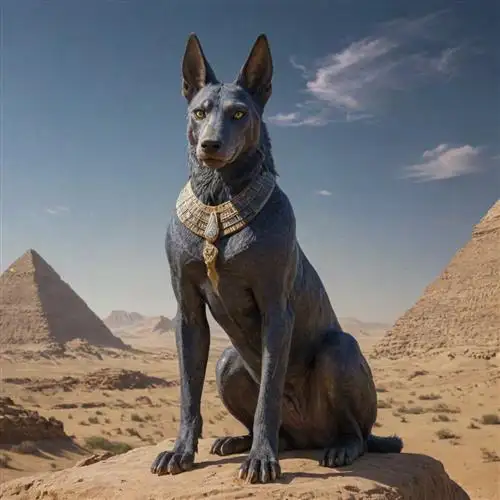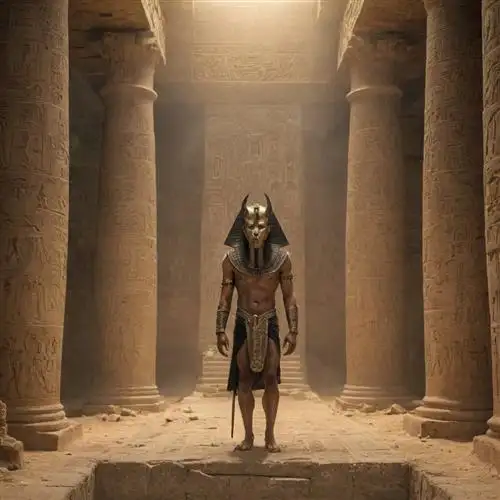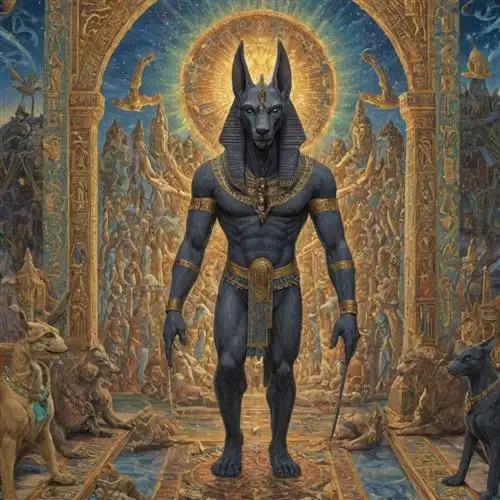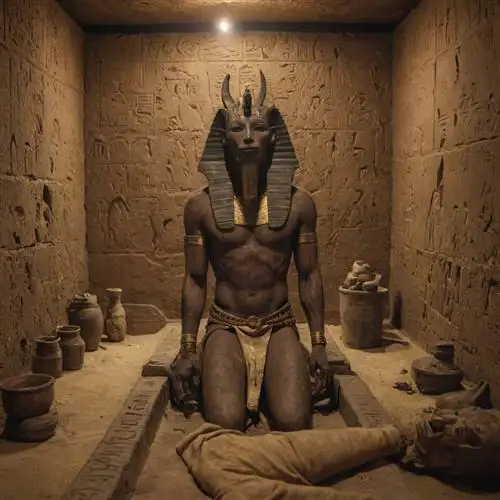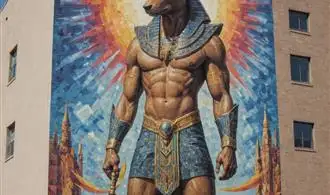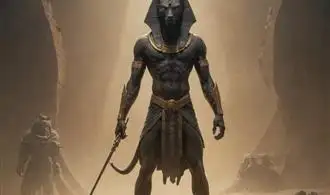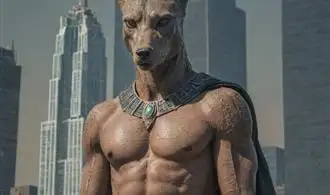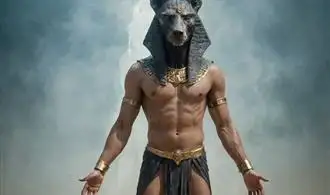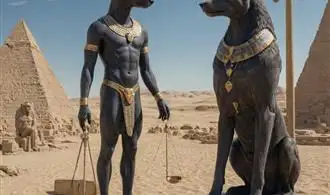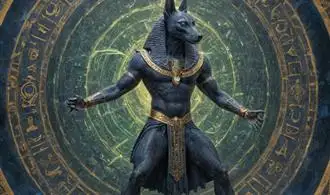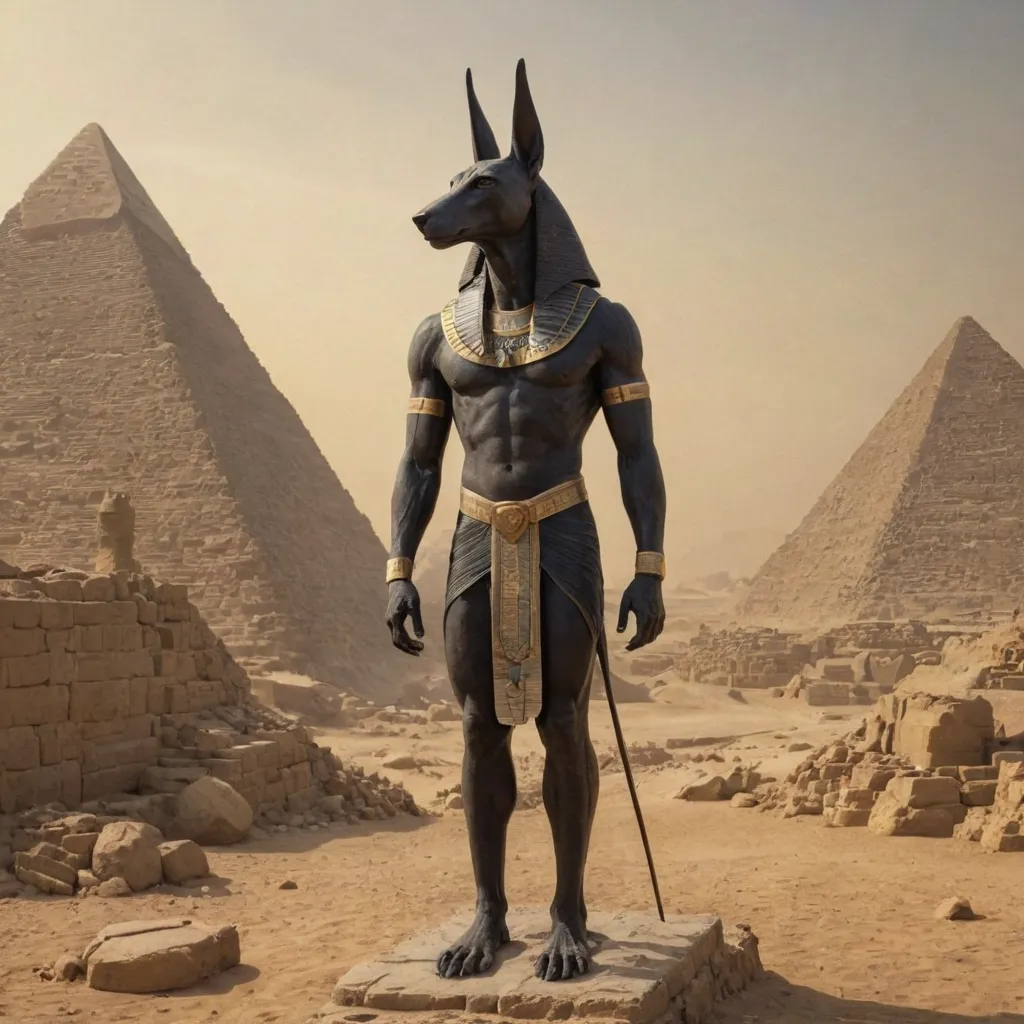
The Enigmatic God Anubis
Anubis, the jackal-headed god of ancient Egyptian mythology, has long captivated the imaginations of scholars and enthusiasts alike. This enigmatic deity, tasked with guiding the souls of the dead through the treacherous afterlife, holds a revered position in the pantheon of Egyptian gods. Understanding the complexities and significance of Anubis is essential for those seeking to delve into the rich tapestry of ancient Egyptian beliefs and rituals.
One of the most intriguing aspects of Anubis is his multifaceted role in the Egyptian afterlife. As the god responsible for the embalming and mummification process, Anubis was believed to ensure the preservation of the deceased's physical form, enabling their successful transition to the next life. This vital function was not merely a practical matter but a deeply spiritual one, as the ancient Egyptians believed that the preservation of the body was crucial for the soul's continued existence.
Beyond his role in the mummification process, Anubis was also charged with weighing the hearts of the dead against the feather of Ma'at, the goddess of truth and justice. This pivotal moment, known as the "Weighing of the Heart," determined the fate of the individual's soul. If the heart was found to be pure, the soul would be granted passage to the afterlife; if not, it would be condemned to eternal damnation. The importance of this ritual cannot be overstated, as it underscored the ancient Egyptians' belief in the need for moral and ethical behavior in life to ensure a favorable outcome in the afterlife.
Interestingly, Anubis' iconography and symbolic representations have evolved over time, reflecting the shifting cultural and religious influences within ancient Egypt. While he is most commonly depicted with the head of a jackal, some depictions also show him with the head of a dog or a human with a jackal's head. These variations in his physical appearance often correspond to the specific functions or aspects of Anubis being highlighted in a particular context.
The cult of Anubis was also deeply intertwined with the burial practices and funerary rituals of ancient Egypt. Anubis was often invoked during the embalming and mummification process, and his shrines and temples were situated in close proximity to major necropolises and burial sites. This close association with the deceased and the afterlife cemented Anubis' status as a crucial figure in the Egyptian pantheon, one whose influence and importance extended far beyond the mortal realm.
Anubis and the Secrets of the Afterlife
Anubis, the enigmatic jackal-headed deity, has long been revered as the guardian of the afterlife in ancient Egyptian mythology. His role in the intricate tapestry of the Egyptian belief system is profound, and understanding the secrets of the afterlife he presides over can provide invaluable insights into the very nature of existence. As a professional content writer, I am excited to delve into the rich and captivating world of Anubis and the afterlife, offering readers a comprehensive and thought-provoking exploration of this captivating topic.
At the heart of Anubis's domain lies the profound concept of the afterlife, a realm shrouded in mystery and often the subject of intense speculation. The ancient Egyptians believed that upon death, the soul (or ka) would embark on a perilous journey, guided by Anubis, towards the underworld and the final judgment. This process was meticulously documented in the Book of the Dead, a collection of spells and incantations designed to ensure a safe passage for the deceased.
Anubis, as the "Opener of the Ways," played a crucial role in this journey, overseeing the rituals and rites that would determine the fate of the soul. His presence was believed to be essential in the weighing of the heart ceremony, where the deceased's heart was weighed against the feather of Ma'at, the goddess of truth and justice. If the heart was found to be pure and righteous, the soul would be granted access to the eternal paradise of the afterlife. However, if the heart was deemed unworthy, the soul would be condemned to a fate of eternal torment.
The significance of Anubis's role in the afterlife cannot be overstated. As the guardian of the necropolis and the embalmer of the dead, Anubis was tasked with ensuring the proper preparation of the body for the journey to the underworld. This process, known as mummification, was a complex and intricate ritual that involved the removal of the internal organs, the desiccation of the body, and the application of various preservatives and wrappings.
The I Mastered Anubis Iconography and So Can You article provides a fascinating exploration of the rich and nuanced iconography associated with Anubis, which can offer valuable insights into the beliefs and practices surrounding the afterlife. From the distinctive jackal-headed figure to the various symbols and motifs that adorn his representation, understanding Anubis's visual language can deepen one's appreciation for the complexities of the ancient Egyptian worldview.
Beyond the rituals and iconography, the secrets of the afterlife guarded by Anubis extend into the realms of metaphysics and cosmology. The ancient Egyptians believed in a highly structured and hierarchical universe, where the underworld, the mortal realm, and the divine realm were intricately connected. Anubis's role as the gatekeeper and guide of the souls was seen as essential in maintaining the delicate balance of this cosmic order.
The Pivotal Role of Anubis in the Journey to the Afterlife
Anubis, the jackal-headed deity, played a vital role in the ancient Egyptian conception of the afterlife. As the god of embalming and the guardian of the dead, Anubis guided the souls of the deceased through the intricate process of transitioning to the next world.
One of the most significant responsibilities of Anubis was the ritual of mummification. The ancient Egyptians believed that preserving the physical body was crucial for the soul's journey to the afterlife. Anubis oversaw this process, ensuring the proper preparation and protection of the deceased's remains. By carefully removing the internal organs, filling the body with natron, and wrapping it in linen, Anubis ensured the soul had a physical vessel to return to after death.
During the process of judgment in the afterlife, Anubis played a pivotal role. The deceased would stand before the tribunal of the gods, where their heart would be weighed against the feather of truth. Anubis, as the god of the dead, was responsible for conducting this crucial weighing ceremony. If the heart was found to be pure and the individual had lived a righteous life, they would be granted access to the afterlife. Anubis's impartial judgment and guidance ensured the deceased's soul could continue its journey to the realm of the eternal.
The significance of Anubis extended beyond the judgment process. He was also responsible for guiding the souls of the dead through the challenges and obstacles they would face in the afterlife. Anubis accompanied the deceased on their journey, protecting them from the dangers and uncertainties they would encounter. This guidance was essential, as the ancient Egyptians believed the afterlife was a complex and treacherous realm that required the assistance of the gods.
Anubis and the Mummification Process
Anubis, the jackal-headed deity, played a crucial role in the mummification process of ancient Egyptians. As the god responsible for the preparation and protection of the dead, Anubis' involvement in this sacred ritual was paramount. The mummification process, a complex and meticulous procedure, ensured the preservation of the deceased's physical form, allowing their ka (life force) and ba (soul) to be reunited in the afterlife.
Anubis' role in the mummification process began with the initial stage of the ritual, known as the "Opening of the Mouth" ceremony. This symbolic act was believed to restore the deceased's senses, enabling them to breathe, speak, and partake in the offerings presented to them. Anubis, as the overseer of this ritual, would guide the embalmers in performing the necessary incantations and gestures to activate the deceased's faculties.
The next crucial step was the actual mummification process, which Anubis oversaw closely. The embalmer, known as a "Sahu," would carefully remove the internal organs, leaving the heart in place, as it was considered the seat of the soul. Anubis would then preside over the evisceration, ensuring the proper extraction and preservation of the organs. These organs were then placed in canopic jars, each guarded by one of the four sons of Horus: Imsety, Hapy, Duamutef, and Qebehsenuef.
The body was then filled with natron, a natural salt compound, to dehydrate and preserve the flesh. Anubis would oversee this process, ensuring the proper application of the natron and the subsequent wrapping of the body in linen bandages. This mummification process, which could take up to 70 days, was crucial in preparing the deceased for their journey to the afterlife.
The Enduring Legacy of Anubis in Ancient Egyptian Beliefs
Anubis, the jackal-headed deity, held a profound and enduring role in the ancient Egyptian belief system. As the god of the afterlife, embalming, and funerary rites, Anubis was a central figure in the complex and intricate rituals that guided the deceased on their journey to the afterlife. His presence was ubiquitous, from the preparation of the body for mummification to the weighing of the soul during the judgement of the dead.
One of the key aspects of Anubis's role was his involvement in the mummification process. As the patron of embalmers, Anubis oversaw the intricate and meticulous procedures that transformed the deceased into a preserved vessel for the soul. The jackal-headed deity was believed to have taught the art of embalming to the ancient Egyptians, ensuring the successful transition of the individual into the afterlife.
During the judgement of the dead, Anubis played a pivotal role. He was responsible for weighing the heart of the deceased against the feather of Ma'at, the goddess of truth and justice. This ritual, known as the "Weighing of the Heart," determined the fate of the individual's soul. If the heart was deemed pure and true, the soul would be allowed to pass on to the afterlife. If the heart was found wanting, the soul would be condemned to eternal damnation.
Anubis's importance extended beyond the afterlife rituals. He was also revered as a guardian and protector, watching over the dead and ensuring their safe passage to the next world. The ancient Egyptians believed that Anubis would greet the deceased at the gates of the afterlife, guiding them through the challenges and obstacles they would face on their journey.
The enduring legacy of Anubis is evident in the numerous depictions and representations of the deity found throughout ancient Egyptian art and architecture. From the iconic statues and paintings in temples and tombs to the amulets and talismans worn by the living, Anubis's image and symbolism were ubiquitous in the ancient Egyptian world.

